
Brachiopods are exclusively marine, living in the prehistoric saltwater seas. There have been about 30,000 fossil species described to this date. There still are around 385 brachiopod species in the oceans today occupying the deep oceans and oceans near the polar regions.
The word brachiopod comes from the ancient Greek - brachion means "arm" and podos means "foot."
ABOUT BIVALVES
Mollusks are a large group of invertebrate creatures and include animals such as snails, slugs, squids and clams. Brachiopods have a soft body inside a hard calcium carbonate shell. It is because of this shell that we can find so many brachiopod fossils. The hard shell rarely decays away before fossilization.
This story is from the May 2023 edition of Rock&Gem Magazine.
Start your 7-day Magzter GOLD free trial to access thousands of curated premium stories, and 9,000+ magazines and newspapers.
Already a subscriber ? Sign In
This story is from the May 2023 edition of Rock&Gem Magazine.
Start your 7-day Magzter GOLD free trial to access thousands of curated premium stories, and 9,000+ magazines and newspapers.
Already a subscriber? Sign In
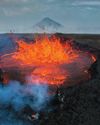
THE BRIGHT SIDE OF VOLCANIC ROCK
As a mineral resource, volcanic rock is decidedly short on glamour.
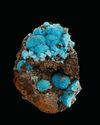
The Other Copper Minerals
12 Lesser-known Collectible Species

MINERAL COLLECTING -AND ROCK & GEM
Evolving Together FOR 54 YEARS
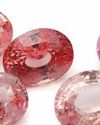
Gemstone Trends
A Look Back at 2024 & What to Expect in 2025
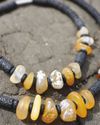
How to Make a GEM BEAD NECKLACE
No Lapidary Experience Needed!
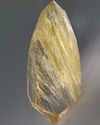
Framing Nature's Art
Faceting Rutilated Quartz for Beginners
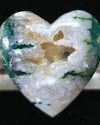
BEDAZZLED BLUE SEAM AGATE
More than several centuries ago, mining was the profession most often seen as befitting of men.
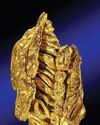
ROCK & GEM FIELD GUIDE:
Spinel is a captivating gemstone with a rich history of being mistaken for gems like ruby and sapphire.
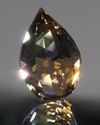
SNAKE SCALE DROP 1.5:1
This Faceting Focus is revisiting the briolette gemstone design because of its popularity with independent and hobby gemstone faceters.

STONE CHIC
How Earth-Inspired Decor Brings Comfort to our Home